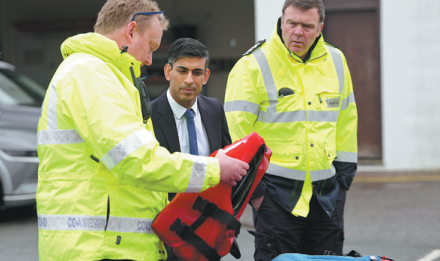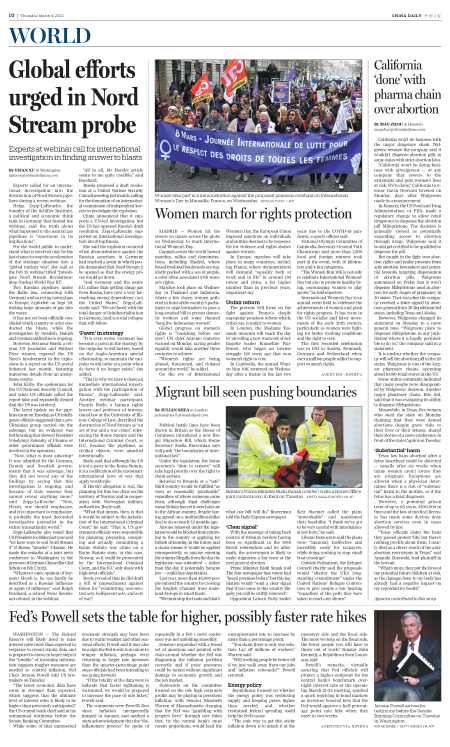
Britain's Prime Minister Rishi Sunak (center) visits a Home Office joint control room in Kent on Tuesday.
Political battle lines have been drawn in Britain as the House of Commons introduced a new Illegal Migration Bill, which Home Secretary Suella Braverman says will push "the boundaries of international law".
Under the legislation, the home secretary's "duty to remove" will take legal priority over the right to claim asylum.
Removal to Rwanda or a "safe" third country would be fulfilled "as soon as reasonably practicable", regardless of where someone came from, although legal challenges mean Britain has yet to send anyone to the African country, despite having agreed on a multimillion-dollar deal to do so nearly 12 months ago.
Anyone removed under the legislation would be blocked from returning to the country or applying for British citizenship in the future, and a clause means it would be applied retrospectively, so anyone entering the country illegally from the day the legislation was submitted — rather than the day it potentially became law — could face deportation.
Last year, more than 45,000 people entered the country by crossing the English Channel from mainland Europe in small boats.
"We must stop the boats and that's what our bill will do," Braverman told the Daily Express newspaper.
'Clear signal'
With the message of taking back control of Britain's borders having been so significant in the 2016 Brexit referendum and its aftermath, the government is likely to make migration a key issue at the next general election.
Prime Minister Rishi Sunak told The Sun newspaper that voters had "heard promises before", but this legislation would "send a clear signal that if you come to this country illegally, you will be swiftly removed".
Opposition Labour Party leader Keir Starmer called the plans "unworkable" and questioned their feasibility. "I think we've got to be very careful with international law here," he said.
Liberal Democrats said the plans were "immoral, ineffective and incredibly costly for taxpayers, while doing nothing to stop small boat crossings".
Outside Parliament, the Refugee Council charity said the proposals would "shatter the UK's longstanding commitment" under the United Nations' Refugee Convention to give people a fair hearing "regardless of the path they have taken to reach our shores".
julian@mail.chinadailyuk.com

